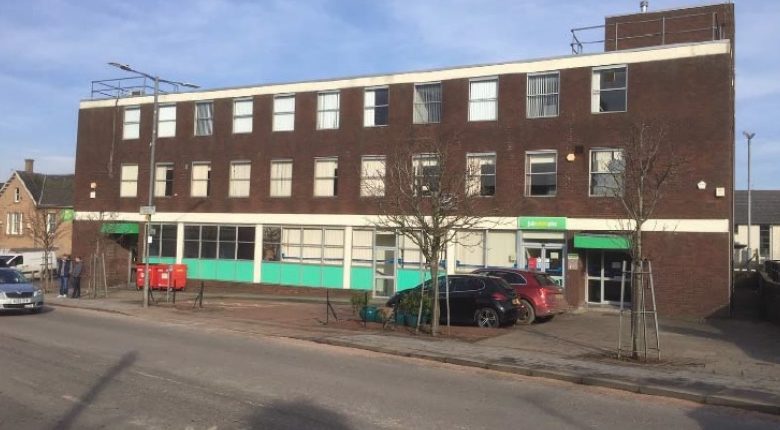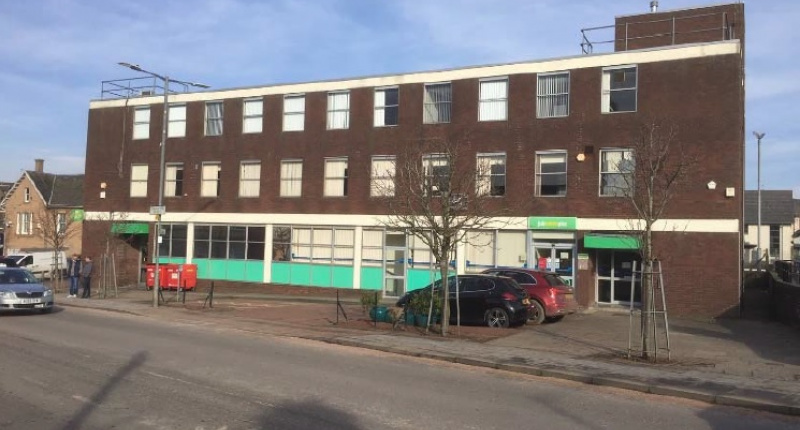
 The featured image is Atholl House in Lanark, which could be used for a new local CodeBase chapter, but this article isn’t actually about CodeBase, or Lanark.
The featured image is Atholl House in Lanark, which could be used for a new local CodeBase chapter, but this article isn’t actually about CodeBase, or Lanark.
Rather it’s about the general principle of Scotland making better use of under-used assets, and the critical role of simple resources like office space to our digital economy ambitions.
Infrastructure for building a Digital Nation isn’t limited only to technology. It also includes other dimensions that similarly contribute to building national capacity, such as office working facilities, especially so for Scotland’s smaller towns and rural areas.
These environments provide the basic but essential building blocks of digital economy participation, from wifi through printers, and critically also foster ad-hoc, dynamic contact networks. Cities like Edinburgh and Glasgow are well catered for when it comes to these ‘co-working’ spaces, headlined by huge success stories like CodeBase.
Rural Enterprise Hubs
However Scotland’s big economic challenge is the many more smaller towns and communities, where they face crippling economic situations, many in obvious states of decline. A key part of this difficulty is Scotland’s aging demographics.
The Scotsman reported in 2018 that Scotland’s rural communities face losing up to a third of their working age population by 2046, losing more than a quarter of their population within the next thirty years, with Western Isles, Argyll and the Southern Uplands among the worst affected.
“A report by the James Hutton Institute found that “sparsely populated areas” – defined as those where fewer than 10,000 people can be reached within 30 minutes of travel – account for almost half of Scotland, but just 2.6 per cent of the population live there.”
One of the most powerful ways this challenge could be addressed is tapping into the massively changing world of work, as it has become increasingly virtualized, via Zoom meetings et al, and distributed with many working from home.
This trend is driving societal change that can be harnessed. Thousands are moving out of the cities to enjoy a better quality of life, and there is a uniquely powerful perfect storm of opportunity to promote Scotland as the best nation in the world for digital living and working.
This could be achieved through what the SRUC describes as ‘Rural Enterprise Hubs‘: Physical spaces that provide rural businesses and entrepreneurs with workspaces (offices or workshops), communal spaces to network and socialise, meeting rooms, coworking spaces, shared kitchen facilities, networking groups and business support opportunities. The TownToolkit provides inspiring examples, such as the Falkirk Business Hub.
Their role as economy enabling hubs is key – While the Gig Economy is inherently about individuals working alone as freelancers, often via online virtual tools and booking methods, there is still considerable value in facilitating physical collaboration.
Igniting Economic Rejuvenation
This offers huge potential for smaller Scottish towns in desperate need of a rejuvenated economic strategy, where they have under-utilized assets that could be easily repurposed towards this goal. The Ferret reported that local authorities in Scotland’s four largest cities own over 1,100 vacant business properties.
This effect is replicated across rural regions too. For example Atholl House in Lanark was previously used by the DWP but has since been abandoned and now sits derelict and unused.

It would be ideal for a regional co-working centre for the town, injecting an exciting potential for cultivating new startup businesses and also making better use of this valuable asset. It is located right next door to both a train station connecting to Edinburgh and Glasgow, and a bus station with routes spanning all of Lanarkshire and beyond.
Bluntly speaking, if converted to offices and co-working facilities it would be an immediate success, and the fact it hasn’t been and has instead been left to fall into ruin, is painfully indicative of how we are sorely lacking effective local economic development policies and action programs.
It would drive multiplying levels of benefit and growth – Repurposing unused assets for starters, and then the larger ongoing economic growth achieved through increasing population and businesses. For towns seeking to attract more businesses, young workers and their families, and to cultivate more startups, this is how to do it.



